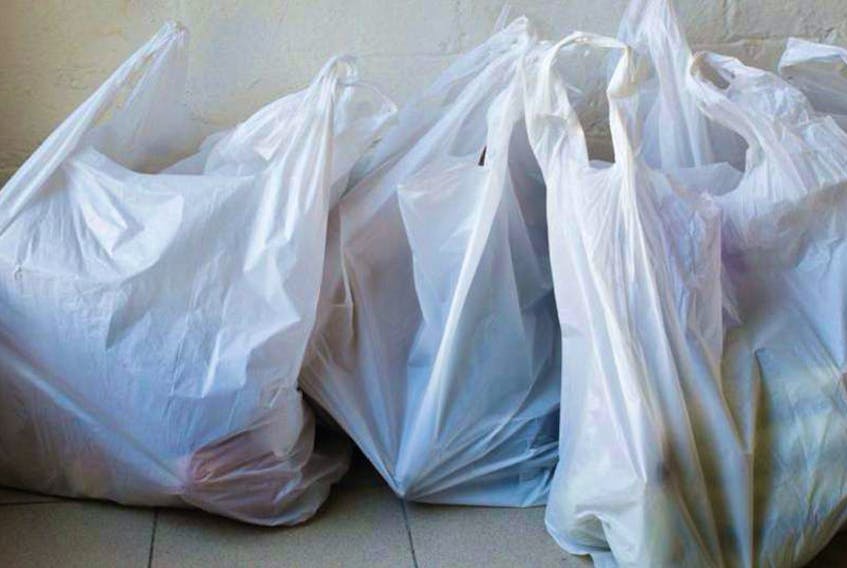People in the Atlantic provinces, British Columbia and Quebec are most concerned about the impacts of single-use plastics in the food industry, says a new study by the Agri-Food Analytics Lab at Dalhousie University.
More than 87 per cent of respondents from across the country said they consider the environmental impact of single-use plastic packaging to be important, and 93.7 per cent said they are personally motivated to reduce their consumption of those plastics.
Quebec has the highest percentage of personal motivation at 95.6 per cent, with the Atlantic provinces at 94.6 per cent and British Columbia at 94.
The study was released Thursday. Federal Environment Minister Catherine McKenna recently indicated that a federal strategy to tackle plastic pollution will be announced this month.
“It’s the most dominating issue in the food industry right now,” said Sylvain Charlebois a professor of food distribution and policy, and one of four Dal researchers who worked on the six-month study.
He said the issue has likely caught the industry by surprise.
“A few years ago we didn’t even talk about plastics,” he said. “That’s why I think everyone is scrambling to find solutions for this massive problem.”
He said some companies, like Metro grocery stores in Quebec, are looking for “quick and dirty solutions.” Metro is allowing people to bring in their own containers to avoid using plastic bulk food and vegetable bags, “but I don’t think Loblaws and Sobeys will follow suit.”
Food manufacturers also are looking for ways to reduce packaging, Charlebois said.
Among other things, the study found that millennials and Gen Z are generally more mindful than older generations when it comes to the plastics issue; most Canadians aren’t willing to pay a premium above 2.5 per cent for a SUP solution at retail, but are open to a tax and the majority of Canadians believe all sectors of the food industry and all three levels of government are responsible.
Charlebois said that one thing that is problematic is the lack of standards for plastics across the country.
“There are all kinds of plastics out there, which leads to a lot of confusion. People wonder ‘is this recyclable?’ or ‘what can I do with this?’”
He said that’s why the study recommends that standards should be harmonized so people know what plastics are recyclable, or that industry be forced to only use plastics that are recyclable.
No clear preference on solution
He said there is no clear preference on a solution, but compostable or biodegradable packaging is the most preferred option with almost 31 per cent of respondents. Reusable containers brought to the store was next at 23 per cent, followed by paper packaging at 22.8 per cent and “naked food” at 10 per cent.
Charlebois was a conference in New Orleans Wednesday at which a lot of food packaging solutions being presented were compostable, but many of those are more than 20 per cent more expensive.
“The study clearly points to the fact that Canadians want industry and government to fix the plastic problem without paying a dime,” he said.
He said plastics have a role in food safety and affordability, and can reduce food waste as well.
“Trying to replace plastics with another kind of material is not an easy task,” Charlesboi said. “I’m not suggesting that it shouldn’t be done; I think our current course is unsustainable, but people need to realize this will come as a cost.”
He said Atlantic Canadian respondents and those in British Columbia were the most willing to pay for eco-friendly packaging, because “we see the problem... everyone goes to the beach, and every single time you see plastics on the beach somewhere.”
Just over 71 per cent of Canadians support a ban of single-use packaging in packaging, the study found. Atlantic Canadians were the most supportive at 79.2 per cent, while the Praries were least supportive at 61.1 per cent.
Just over 56 per cent of respondents actively shop for food with non-plastic packaging. British Columbia led the way at 65.4 per cent, while 63.4 per cent of Atlantic Canadians did and 47 per of respondents from the Praries agreed.
The results in the study are considered accurate within 3.2 per cent, 19 times out of 20.
Among the study’s recommendations are:
- The use of compostable packaging (plant-based polymers) should be encouraged and incentivized;
- Support for research and commercialization of compostable packaging should be enhanced, with active involvement of municipalities;
- The “naked food” model should be seen as a compelling option;
- The use of recyclable materials like cardboard, paper, and foil wrapping should be encouraged;
- Taxation and bans should be considered as populist measures with limited and potentially compromising outcomes, but a voluntary phase-out of plastic bags should be implemented.









